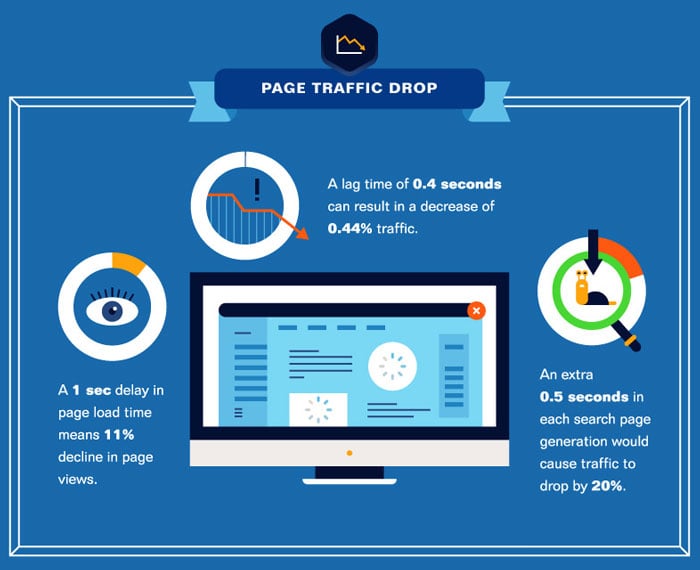Introduction
Just how important is Website Speed?
Nowadays, it’s hard to find a post about optimizing websites that doesn’t include a section on website speed. Content may still be King, but improvement in load speed is the Knight in Shining Armour and the panacea for just about every website performance issue. Experts agree that having a fast website is crucial for attracting more traffic. Let’s take a look why is this so important.
Load Speed is your Knight in Shining Armour
The Google Speed Update
For starters, Google’s speed update was a wake-up call. Until 2017, the effect of speed on ranking only really applied to desktop sites. Since July 2018, speed also has a big impact on Google mobile rankings. This comes as no surprise considering that the vast majority of users now prefer browsing the internet from mobile devices. What is surprising, however, is that mobile sites still tend to be slower than desktop sites.
Average Load Speeds
According to a web resource with stats and facts about the impact of website loading speed curated by hostingtribunal.com (a website testing extensively hosting speed and uptime), average desktop and mobile load times are 9.3 and 22 seconds, respectively.
Three seconds is all you have to encourage your visitor to stay on your site
This gives website owners something to worry about. The slow load speed has a negative influence on a site’s Google ranking. What’s more, long load times affect user experience. Users either leave or won’t return to a website that takes over three seconds to load. Simply said, users will abandon a slow site and go somewhere else.
This is a worst-case-scenario for every website owner. Not only will customers forget about you and turn to competitors, but your bounce rate will increase and Google will further demote your site’s rank in its search results, causing you to lose organic search traffic. in other words, the effect of poor speed amplifies leading to an overall drop in your SEO performance.
To put this in numbers, research shows that you could lose up to 11% of page views for one second of delay. Imagine then what happens if the loading takes 9.3 or 22 seconds!
Speed is even more important for eCommerce Sites
Slow e-commerce websites are in particular danger. Not too many customers are willing to wait an eternity for a payment page to load. It is likely that they will leave your site dissatisfied and furious, and you can kiss them goodbye. Slow speed makes 44% of the customers worried about the safety of their transaction, and 18% abandon transaction altogether. Moreover, sluggish online stores also get bad publicity – 44% of dissatisfied customers tell friends and family members to avoid your business. Here’s what this means for your profits. Each second added to the load times reduces conversion rate by about 7%. This number is confirmed by Amazon, the biggest ecommerce site. Experts at Amazon project an estimated $1.6 billion/year reduction in profits to the company if the site’s load time went down by one second.
Conclusion
In summary, if you want your site to be successful then improved website speed should be top of your list of things to address. The infographic on this page includes all the essential statistics that we could find on the effects of site speed on your online success. Check it out and find out how to get an edge over your competitors.
Infographic published with permission from hostingtribunal.com.


